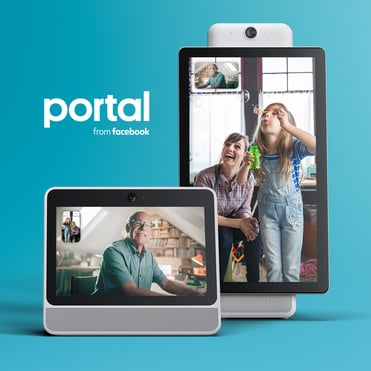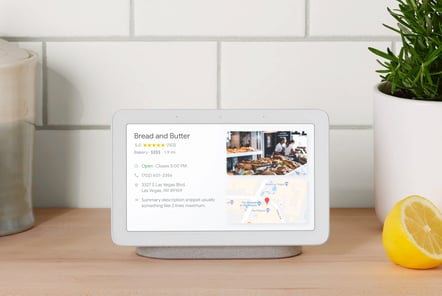Last week Facebook announced they would be making their first step into manufacturing devices, with their connected gadget called Portal.

Portal is a smart device with speakers and a screen, built in Alexa integration and comes in two different configurations.
It seems strange timing for Facebook to be launching what could be seen as a spying device when they have been under a large amount of scrutiny of late for their questionable privacy handing. The funny thing is, this device has already been delayed because of the Cambridge Analytica scandal.
It’s hard to imagine many people who have trust left in Facebook after multiple reports of hacks, data harvesting and the robotic responses of Mark Zuckerberg when fronting US Congress.
To address these massive privacy concerns, Facebook has included some additional security features to Portal. According to Facebook, the Portal’s microphone and camera feature an option that will ‘physically’ disconnect and this will be indicated by a glowing red light. They have even included a plastic cover that physically goes over the camera – yup no more putting a post it over your camera!
It’s not really a surprise Facebook wants to get into this market, with the popularity of Amazon Alexa, Google Home and Google’s latest addition; the Home Hub.
 Google have also taken steps to reassure consumers about their privacy and have completely omitted a camera from the Home Hub. Google said it made the decision to not include a camera in order to offer better privacy. So without a camera you obviously can’t make video calls, but it also means some weirdo can’t hack the device and watch you walk around your house.
Google have also taken steps to reassure consumers about their privacy and have completely omitted a camera from the Home Hub. Google said it made the decision to not include a camera in order to offer better privacy. So without a camera you obviously can’t make video calls, but it also means some weirdo can’t hack the device and watch you walk around your house.
Both of these products reflect the changing attitudes towards privacy and the expectations we have on the companies that handle our personal information.
It’s not just changing attitudes in society, we now have legislation that requires companies to inform customers if their information has been accessed or compromised in any way. The Mandatory Data Breach Notification law came into effect earlier this year and has already seen over 305 notifications made to the Office of the Australian Information Commissioner (OAIC) in the first 6 months.
Consumers expect organisations to have processes and plans in place to protect and ensure their data is handled correctly. We’ve seen the huge public backlash to companies like Facebook when it came out that they were sharing their user’s information.
It’s up to the company to ensure their staff are trained and that they have the infrastructure in place to protect sensitive information, and that they know what to do if a data breach does occur.
The vast amount of personal data out there is staggering and often consumers are happy to trade it for convenience, but they are now expecting more of the companies that benefit from their data and are holding them accountable.






Let Us Know What You Thought about this Post.
Put your Comment Below.